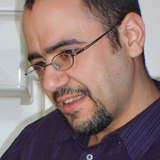 Recently Lord Howe warned GPs to stop complaining about their work conditions, so that they did not cause a workforce crisis. Similar noises were heard from NHS England at the recent Royal College of General Practitioners Annual Conference, where politicians and leaders were questioned about the state of primary care and, in particular, general practice, by delegates who seemed close to breaking point.
Recently Lord Howe warned GPs to stop complaining about their work conditions, so that they did not cause a workforce crisis. Similar noises were heard from NHS England at the recent Royal College of General Practitioners Annual Conference, where politicians and leaders were questioned about the state of primary care and, in particular, general practice, by delegates who seemed close to breaking point.
As a GP, I have every sympathy with those raising issues about excessive, unreasonable patient demand; arbitrary health and safety checks (including the state of paintwork in the cleaner’s cupboard); and the morale sapping nature of being the current political football of choice. And yet I still go to work. As do most GPs.
I have no plans to change career and, as I am not even 40 yet, retirement is not an option. Owing to extended family commitments, emigration is not a possibility either for me. As well as trying to foster positive changes for British general practice through www.resilientgp.org and writing in the medical press, I find I need to remind myself what it is that made me want to be a GP and what it is I enjoy about the job.
I love people and their stories. There are very few jobs where you can have interactions with 40 or more patients each day, and really have an intimate and meaningful conversation. I may even alter the course of someone’s life from time to time. The position of trust that GPs occupy means that sometimes the most astounding things are shared.
The job is a challenge. Serious diseases and conditions are thankfully relatively rare, but as a GP you need to be able to sense and/or deduce when something is wrong and needs investigating. This is not easy when all that many people need is reassurance, or the education to know that their symptoms didn’t actually need the advice of a GP. When you get the diagnosis right there is a great deal of professional satisfaction.
The job is rewarding, even putting aside correct diagnoses or successful treatments. It is rewarding to be able to teach patients about their own bodies. It is rewarding to be able to make a difference to patients and their families in the last days of their lives, when you can almost become an adopted member of the family. Even if there is nothing much that can be done, showing that you care and empathise with their pain and suffering is greatly appreciated.
I am lucky enough to teach medical students, which is also rewarding in a different way—to see the look of recognition when they grasp a concept for the first time. I am also fortunate to be part of a great team that makes up the practice where I work, from manager, GP partners, other GPs, nurses, receptionists, and secretaries. It’s not quite the cut and thrust of battle, but we stick together, warts and all.
I have a medical degree, a basic science degree, and a PhD. I chose to become a GP not just because it means I can spend more time with my family, but because it gives me the right balance of intellectual challenge, social interaction, team ethics, and education. I hope that balance can be maintained for the next 30 years, despite all the issues that seem set to derail general practice.
Samir Dawlatly is a GP partner at Jiggins Lane Surgery in Birmingham. He combines clinical practice with being a part time house husband and an interest in social media, as well as publishing poems, essays, and blogs. He can be found on Twitter as @sdawlatly.
I have read and understood the BMJ policy on declaration of interests and declare the following interests: secretary of the Royal College of General Practitioners (RCGP) Adolescent Health Group, and a member of the RCGP online working group on overdiagnoisis.
